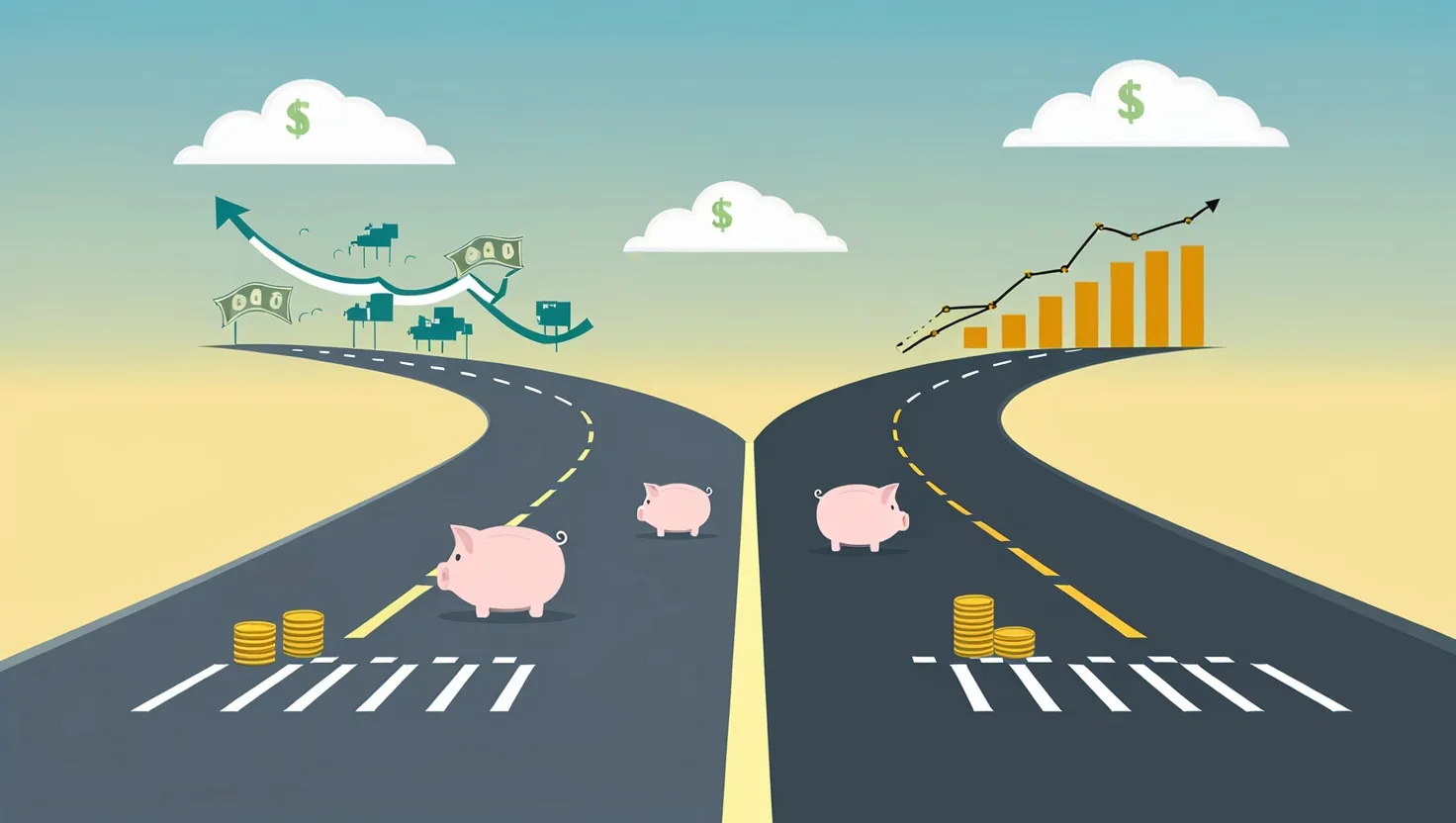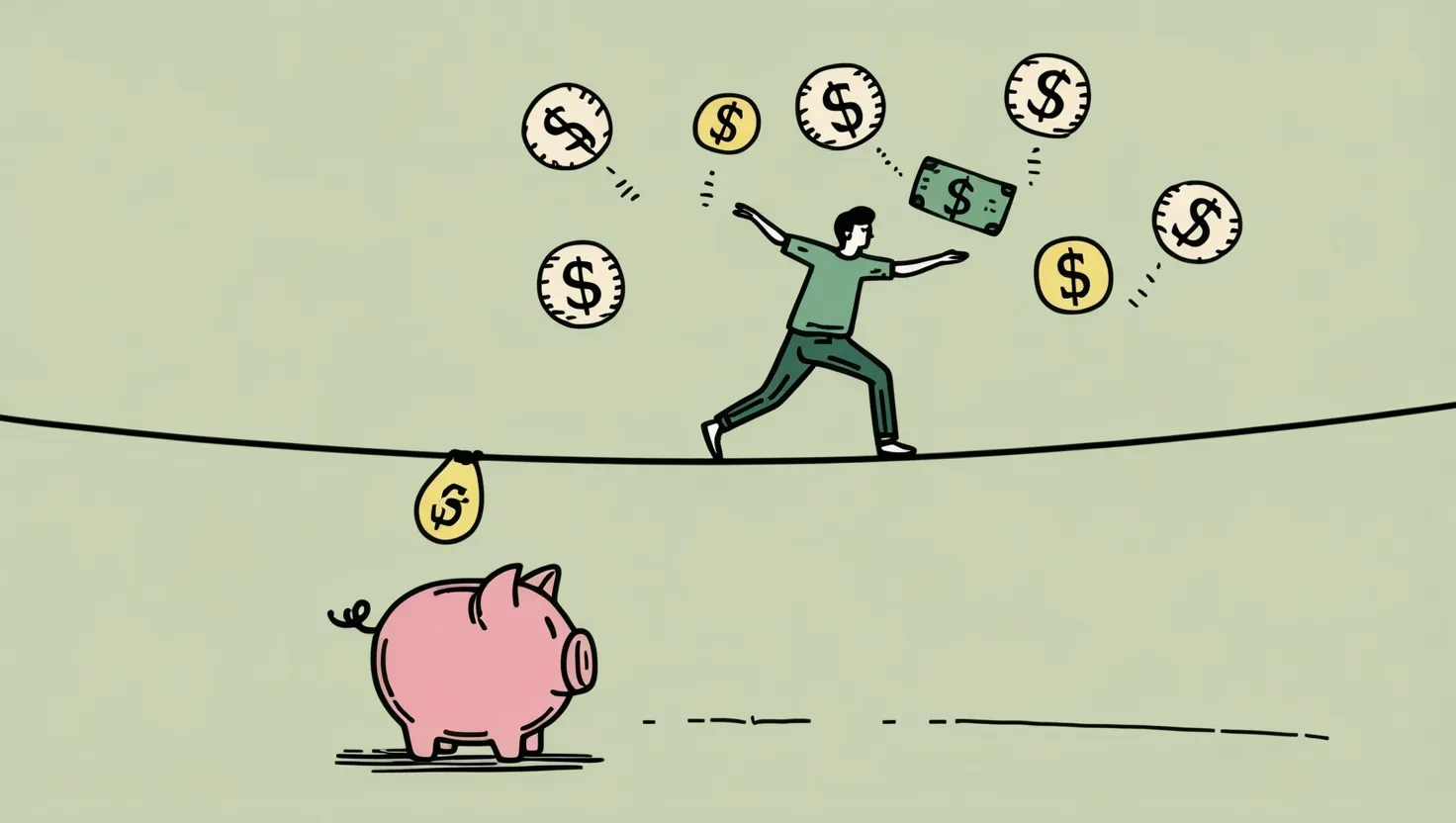Personal finance advice often feels like a set of rigid commandments handed down from on high. We’re told to religiously follow certain rules if we want to achieve financial success. But what if some of those rules are actually holding us back? What if breaking them could accelerate our path to wealth?
I’ve spent years studying personal finance and observing how people actually build wealth in the real world. And I’ve come to realize that many of the standard rules we’re taught deserve a second look. The truth is, personal finance is deeply personal. What works for one person may not work for another. And in today’s rapidly changing economic landscape, some old rules of thumb no longer apply.
So let’s explore some common financial advice that may be worth breaking - or at least bending - if you want to supercharge your wealth-building efforts.
“The safest way to double your money is to fold it over once and put it in your pocket.” - Kin Hubbard
While saving is important, simply hoarding cash won’t make you rich. Sometimes you need to take calculated risks to grow your wealth. Let’s start with a big one: the idea that you should always prioritize debt payoff over investments.
Conventional wisdom says to aggressively pay down all debt before investing. And for high-interest consumer debt, that’s generally good advice. But what about low-interest debt like mortgages or student loans? If you have extra cash flow, it may actually make more sense to invest it rather than throwing it all at debt.
Here’s why: If your debt interest rate is lower than the expected return on investments, you could come out ahead by investing instead. For example, if you have a 3% mortgage but can reasonably expect 7-10% returns in the stock market over time, investing the extra money could lead to greater wealth in the long run.
Of course, there’s an emotional component to debt that can’t be ignored. Some people sleep better at night being debt-free, even if it’s not the optimal financial move. And that’s okay! Personal finance is personal, after all. But if you’re comfortable with some strategic debt, investing instead of aggressive debt payoff could accelerate your wealth building.
What’s your take? Would you be willing to keep some low-interest debt if it meant potentially higher investment returns?
Another sacred cow of personal finance is the idea that you should always buy a home instead of renting. “Renting is just throwing money away,” we’re told. But is that really true?
In many cases, renting can actually be the smarter financial move. When you factor in property taxes, insurance, maintenance, and opportunity costs, owning isn’t always cheaper than renting. And renting provides flexibility that can be invaluable, especially early in your career when you may need to move for better opportunities.
Renting also frees up capital that could be invested elsewhere for potentially higher returns. Instead of tying up a huge chunk of your net worth in an illiquid asset, you could invest in a diversified portfolio of stocks and other assets.
Now, I’m not saying homeownership is always a bad idea. In many cases, it can be a great way to build wealth over time. But the decision to rent or buy should be based on your specific circumstances, not a blanket rule. Run the numbers, consider your goals and lifestyle, and make the choice that’s right for you.
“An investment in knowledge pays the best interest.” - Benjamin Franklin
Speaking of investments, let’s talk about emergency funds. The standard advice is to keep 6-12 months of expenses in a cash savings account for unexpected costs or job loss. And having an emergency fund is certainly important. But does it really need to be that large?
Keeping that much money in cash means it’s not working for you. It’s likely losing value to inflation over time. For many people, a smaller emergency fund combined with access to low-interest credit could provide sufficient safety while allowing more money to be invested for growth.
Consider this alternative approach: Keep 2-3 months of expenses in cash, and put the rest in a conservative investment portfolio that you could tap if needed. You could also open a home equity line of credit or keep a low-interest credit card with a high limit as additional backup. This strategy provides a safety net while keeping more of your money invested and growing.
Of course, this approach requires discipline. You need to be confident you won’t dip into investments or credit for non-emergencies. But for those with stable income and good financial habits, it could be a way to build wealth faster without sacrificing security.
What do you think? How much of an emergency fund do you keep, and why?
Another rule ripe for reconsideration is the “100 minus your age” guideline for stock allocation. This rule suggests that the percentage of your portfolio in stocks should be 100 minus your age, with the rest in bonds. So a 30-year-old would have 70% in stocks, while a 60-year-old would have 40%.
While this provides a simple starting point, it’s overly simplistic in today’s world. People are living and working longer, interest rates have been historically low, and there are more investment options than ever before. A more nuanced approach based on your specific goals, risk tolerance, and overall financial picture is likely to serve you better.
For many people, especially younger investors, a more aggressive stock allocation could lead to significantly more wealth over time. Even for those nearing retirement, a higher stock allocation may be appropriate if you have other sources of income or a long retirement horizon.
The key is to think beyond simplistic rules and create an investment strategy tailored to your unique situation. This may involve working with a financial advisor to develop a personalized plan.
“The stock market is a device for transferring money from the impatient to the patient.” - Warren Buffett
Now let’s tackle a big one: the idea that you should always max out tax-advantaged retirement accounts before considering other investments. While 401(k)s and IRAs offer valuable tax benefits, they also come with restrictions on when and how you can access your money.
If all your investments are tied up in retirement accounts, you may find yourself short on funds for other important goals like starting a business, investing in real estate, or pursuing educational opportunities. These types of investments could potentially generate higher returns and accelerate your path to financial independence.
A more balanced approach might involve contributing enough to get any employer match (that’s free money, after all), then splitting additional savings between retirement accounts and more flexible investment options. This provides tax advantages while keeping some funds accessible for other wealth-building opportunities.
What’s your strategy for balancing retirement savings with other investments?
Another common piece of advice is to pay off your mortgage early, regardless of the interest rate. The idea of being completely debt-free is certainly appealing. But is it always the best financial move?
If you have a low fixed-rate mortgage, you might actually come out ahead by investing extra cash instead of making additional mortgage payments. Historically, stock market returns have outpaced mortgage interest rates over long periods. Plus, mortgage interest is often tax-deductible, lowering the effective rate even further.
There’s also an opportunity cost to consider. Once you put extra money into your home, it’s not easily accessible if you need it for other purposes. Keeping that money invested in more liquid assets provides greater flexibility.
Of course, there are non-financial factors to consider too. Some people simply sleep better at night without a mortgage hanging over their head. And in certain cases - like if you’re nearing retirement and want to eliminate monthly payments - paying off the mortgage early could make sense.
The key is to make a deliberate decision based on your full financial picture, not just follow a blanket rule.
Finally, let’s challenge the idea that all consumer debt is bad and should be avoided at all costs. While high-interest credit card debt is certainly destructive, strategic use of consumer debt can actually help build wealth in some cases.
For example, using a 0% interest credit card offer to fund a business opportunity or investment could pay off if managed carefully. Or financing a car at a low interest rate instead of paying cash could allow you to keep more money invested for potentially higher returns.
The key is to use debt as a tool, not a crutch. Any debt should be part of a thoughtful financial strategy, not a way to live beyond your means.
“The secret to getting ahead is getting started.” - Mark Twain
So what’s the takeaway from all this? The most important rule in personal finance is that there are no absolute rules. Every financial decision should be based on your unique circumstances, goals, and risk tolerance.
Don’t blindly follow advice just because it’s common. Take the time to understand the reasoning behind financial rules, then consider whether they truly apply to your situation. Be willing to challenge conventional wisdom and think creatively about how to build wealth.
At the same time, don’t break rules just for the sake of being contrarian. Any deviation from standard advice should be carefully considered and part of a comprehensive financial plan.
The path to wealth isn’t about following a rigid set of rules. It’s about educating yourself, understanding your options, and making intentional decisions aligned with your goals. It’s about being flexible and adapting your strategy as circumstances change.
So take a fresh look at your finances. Are there any rules you’ve been following that might be holding you back? Any conventional wisdom that deserves reconsideration in your case? By thinking critically and crafting a personalized approach, you may find opportunities to accelerate your journey to financial success.
What financial rules have you broken that worked out well? Any that backfired? I’d love to hear your experiences and insights!






